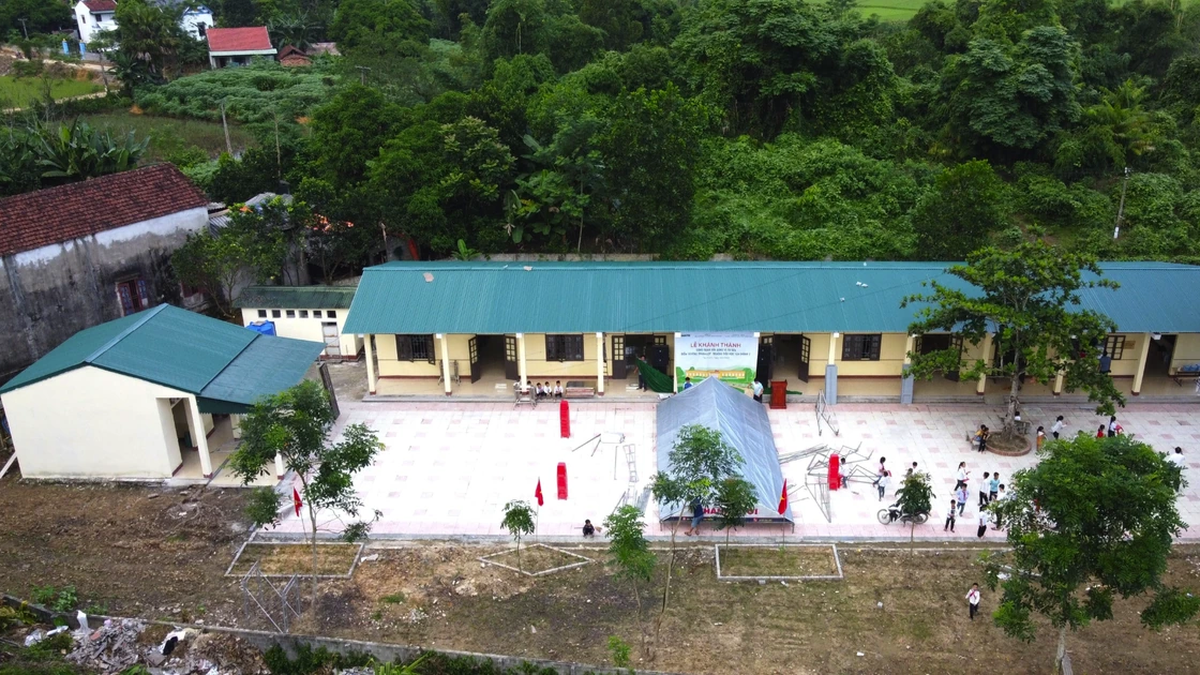Case details
According to the 2024 Land Law, not all cases of illegal land use will be granted a certificate of land use rights and ownership of assets attached to land (red book).

However, the issuance of red books will still be considered for some cases of land use violations before July 1, 2014. This is clearly stated in Clause 1, Points a, c; Clause 2, Point b; Clauses 3 and 4, Article 139, Land Law 2024.
In the first case, if the land is used due to encroachment or occupation of the safety corridor of public works or encroachment or occupation of land used for the purpose of building agency headquarters, public works, or other public works, normally not only will the land owner not be granted a certificate but the land will also be reclaimed by the State.
However, if after the planning adjustment, the competent authority has approved that the encroached area is no longer within the public works safety corridor, not within the road construction boundary... then the certificate will be considered for that area. At the same time, financial obligations must be fully performed according to regulations.
In the second case, the person who is using the encroached land area belonging to the forestry planning for special-use forests and protective forests, the provincial People's Committee shall direct the recovery of the encroached land to hand over to the forest management board for management and land use.
If the locality does not have a forest management board, the person using encroached land will be allocated land by the State for the purpose of protecting and developing protective forests and will be considered for a red book.
In case the encroached land is of agricultural or forestry origin and has been used for agricultural production or housing purposes since before July 1, 2014, and is not included in the forestry planning for special-use forests and protective forests, and is not included in the land use planning for the purpose of building public infrastructure works, the land use right certificate will still be considered for issuance. At the same time, financial obligations must be fulfilled according to regulations.
The third case is for households and individuals who are using land due to encroachment or occupation that does not fall into the above-mentioned cases and are using land for the wrong purpose.
In this case, if the land is being used stably, in accordance with the district-level land use planning or general planning, zoning planning or construction planning, rural planning, it will be considered for a red book and must fulfill financial obligations.

If the land in violation is not used stably or is not in accordance with the planning, the user can only use the land temporarily when the State reclaims it.
In the fourth case, households and individuals who are using agricultural land that they have reclaimed themselves and that is not in dispute will also be granted a red book by the State according to the agricultural land allocation limit set by the provincial People's Committee. The land area exceeding the limit will be transferred to the State for lease.
Thus, when the 2024 Land Law comes into effect, land users who violate the above cases will still be considered for red books.
The 2024 Land Law also clearly stipulates that in cases where households and individuals use land in violation of land laws as stated from July 1, 2014 onwards, the State will not issue red books. Instead, competent authorities will handle the case according to the provisions of law.
Ensure correct procedure
To ensure the process of granting red books for cases of land use violations before July 1, 2014, Dak Nong province has taken specific steps in promulgating regulations and implementing related procedures.

According to the Department of Natural Resources and Environment of Dak Nong, the process of granting red books for the above cases is regulated in detail by the Provincial People's Committee in Decision No. 1032/QD-UBND, dated August 28, 2024 on promulgating the list of newly issued administrative procedures and abolished administrative procedures in the field of land.
In particular, the decision clearly states the list of 62 newly issued administrative procedures and abolishes 58 administrative procedures (AP) in the land sector under the State management scope of the Department of Natural Resources and Environment.
These administrative procedures are not only publicly listed at public administrative service centers, but are also synchronized into the National Database of Administrative Procedures and the Provincial Administrative Procedure Information System.
Making these procedures public and transparent helps people easily access information and perform their duties.

The Dak Nong Provincial People's Committee has assigned the Department of Natural Resources and Environment to research and develop specific guidelines for districts and cities on the process of recognizing land use rights, changing land use purposes and allocating land with payment for violations before July 1, 2014. This is to ensure consistency and uniformity in the implementation process throughout the province.
Localities in the province are also directed to strengthen propaganda about new regulations of the 2024 Land Law, as well as synthesize people's needs for red books.
Signing a commitment to implement procedures and fulfill financial obligations of land users is an important step to ensure that the process of granting red books is transparent and effective, avoiding complaints and lawsuits.
Source: https://baodaknong.vn/dat-khong-giay-to-truoc-ngay-1-7-2014-duoc-cap-so-do-ra-sao-232538.html
































































































Comment (0)